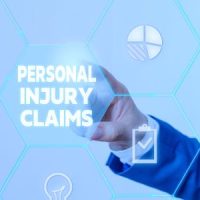What Is a Deposition in a South Carolina Personal Injury Case?

Most personal injury cases in South Carolina are settled outside of court through settlement agreements. A personal injury lawsuit is usually filed only when settlement negotiations fail. One key stage in the lawsuit or litigation process is the deposition, which is part of the discovery phase. This article discusses what a deposition entails, its purpose, and how to prepare for one.
What Is a Deposition?
After a claimant files a personal injury lawsuit in court, the defendant files an Answer. Often, the defendant denies that they did anything wrong and lists defenses they believe excuse them from liability. Next, the discovery phase begins. This phase entails the parties exchanging information and evidence about the case. A deposition is one part of the discovery phase.
A deposition is a question-and-answer session between an attorney and an individual (the deponent) placed under oath regarding a specific case matter. Depositions are conducted outside court, typically in an attorney’s office or conference room. Depositions are recorded by a court reporter, who then creates a written transcript of the testimony. The transcript provides a permanent record of statements made during the deposition and can be presented as evidence in court. In a South Carolina personal injury case, depositions can be taken from a range of individuals, including the plaintiff, defendant, witnesses, and expert witnesses. Generally, anyone with knowledge about the case can be compelled to appear at a deposition, with some exceptions.
What Is the Purpose of a Deposition?
Personal injury depositions are vital for various reasons. First, depositions allow both sides to gather crucial information about the case. The questions attorneys ask during depositions can help clarify facts, correct misunderstandings, and ensure no relevant information is missed. A deposition can provide your attorney with a chance to gather evidence that supports your case. Second, depositions give lawyers a chance to evaluate witness credibility. Depositions can help uncover inconsistencies and weaknesses in witnesses’ testimonies. Additionally, depositions help preserve testimony. The written transcript can be used in court if, for example, a witness is unavailable.
Preparing for a Deposition
Preparing for your personal injury deposition is crucial. The following are some tips for preparing for your South Carolina personal injury deposition;
- Review the facts of your case with your attorney to ensure your memory is refreshed and you can answer questions correctly.
- Understand the deposition process. Review the rules for deposition in your jurisdiction and understand each participant’s role.
- With the help of your attorney, practice answering questions the other attorney might ask during the deposition.
During the deposition, keep the following tips in mind;
- Answer honestly. Lying under oath or misrepresenting facts can weaken your case or result in legal consequences. You could be charged with perjury.
- Stay calm and polite
- Think before answering
- Don’t volunteer information
- Make sure you understand the question
- Avoid guessing answers
Contact a Charleston Personal Injury Attorney
At Gus Anastopoulo Law Firm, we understand the anxiety that comes with the possibility of a deposition. Our qualified personal attorney can help you understand what to expect. We can help you prepare. Contact us today to schedule a consultation.
Source:
law.cornell.edu/wex/deposition
